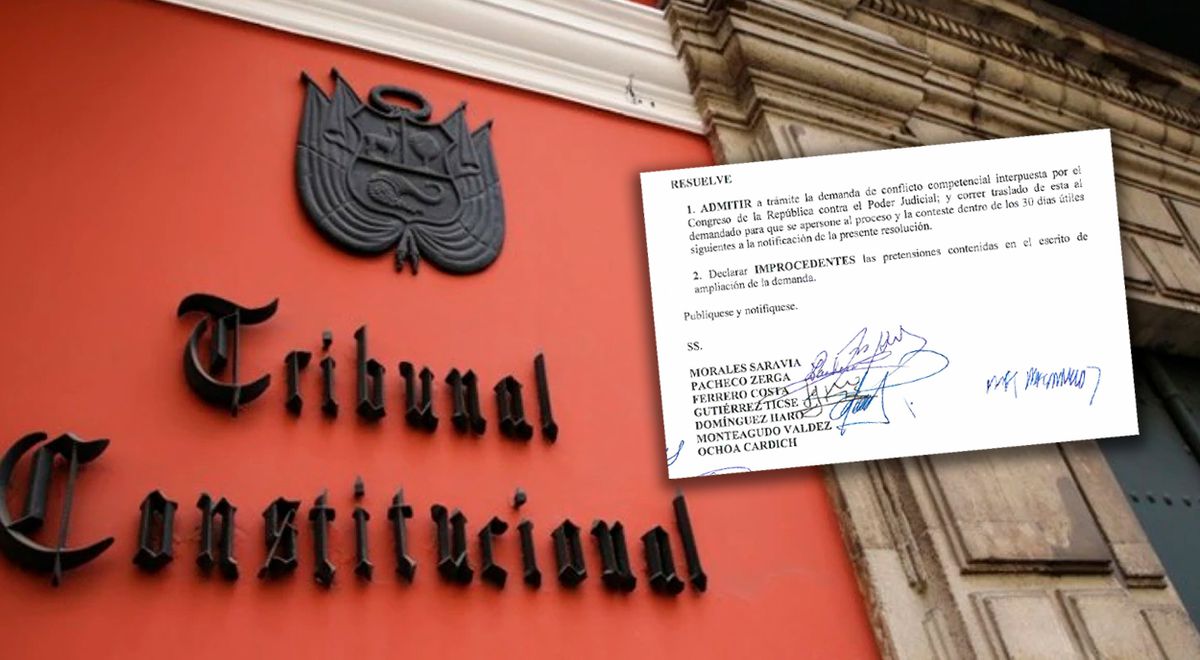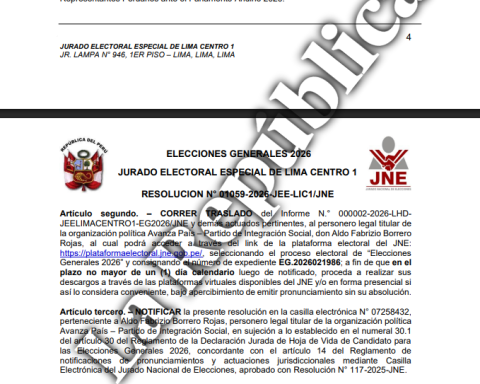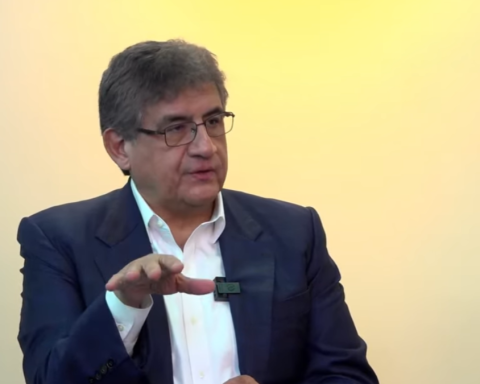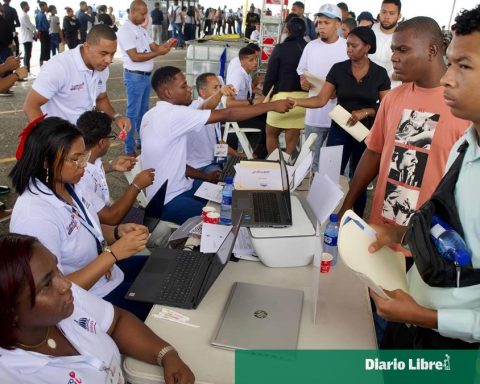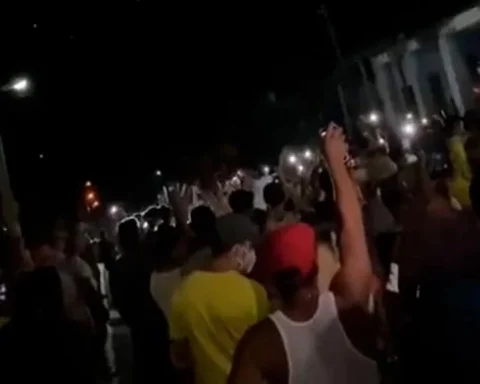The full of constitutional Court He rejected the extension of the demand of the Congress against the Judicial Power, with which it was sought that said instance interpret article 117 of the Magna Carta. This as a result of the constitutional complaint filed by the National prosecutor, Patricia Benavidezagainst the president peter castle.
Initially, the lawsuit was filed to resolve the alleged jurisdictional conflict between Congress and the Judiciary for the precautionary measure that orders the Legislature to suspend the election of the Ombudsman, as well as other amparo processes. In this extreme, the plenary session of the TC considers that the assumptions to be admitted are met.
Then, after the presentation of the constitutional complaint against President Pedro Castillo and the legal debate that this caused, the Parliament decided to request a pronouncement of the limits and scope of article 117 of the Constitution, which establishes that the head of state can only be accused during his term of office for four crimes (treason against the country, impeding elections, unilaterally dissolving Congress and impeding the functioning of the electoral system).
About, the plenary of the TC maintains that in said request “it has not been alleged or proven that article 117 of the Constitution has been specifically applied by the Judicial Power in any case whose resolution would have affected the competence of Congress”. In other words, no conflict of jurisdiction is observed.
It is also stated that each body must carry out its functions “in accordance with the constitutional framework and will interpret autonomously” the articles of the Magna Carta.
“Only when it is alleged that such a task has affected or undermined the powers of another power and constitutional body may the claim for jurisdiction be brought before this Court and it is, in this context, that it will be appropriate to subject the interpretation made to control,” reads in resolution.
Functions
The Constitutional Court reminds Congress that, according to article 202 of the Magna Carta, it is responsible for resolving actions of unconstitutionality and processes of habeas corpus, amparo, habeas data and action of non-compliance.
“These powers (…) do not include the possibility of answering queries or settle the interpretative disputes that the powers of the State could maintain at the theoretical or political level”, they point out.
Likewise, they cite reason 8 of the clarification order issued in file 00032-2021-PI/TC, which establishes that the Constitutional Court “does not have advisory powers nor is it an instance of debate on the scope of its jurisprudence.”
“In conclusion, the claim contained in the addendum to the extension document does not refer to a specific act of the Judiciary that undermines the competence of Congress and, therefore, is inadmissible,” he reasoned.
